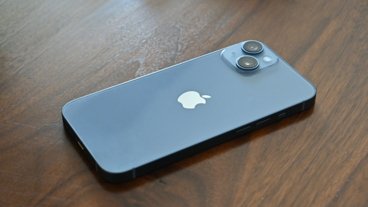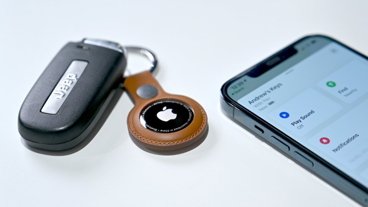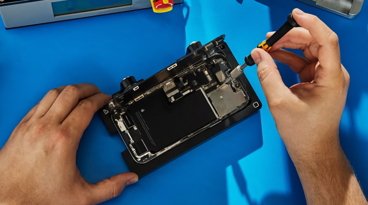Debut of 4G networks to cost U.S. carriers $1.78 billion
AT&T is expected to begin its roll-out of 4G LTE in 2011, while Verizon may look to get a jump on its competitor. But whenever the two largest wireless carriers in the U.S. begin their adoption of the LTE standard, the first year of roll-out alone will cost an estimated $1.78 billion, according to a new study from AIRCOM International.
"LTE represents a major undertaking for mobile operators," said Margaret Rice-Jones, CEO at AIRCOM International. "With an all IP-based network infrastructure, LTE requires completely new thinking compared to previous mobile technologies. Mobile operators around the world face very different challenges in embracing LTE, which will have serious implications on the levels of finance they need to raise."
Currently, the iPhone is only available on GSM networks. While SIM card-based phones are the standard internationally, carriers such as Verizon and Sprint in the U.S. use CDMA-based networks.
But Verizon's adoption of LTE could change that. Unlike the artificial split between North America and the rest of the world today, a large number of both domestic and international carriers plan to move to LTE within the next few years, including AT&T and T-Mobile USA.
If LTE catches on, the switch could let Apple build iPhones that stay with one core technology but which could be used worldwide with no real compromise.
The new report suggested that tier-one carriers like AT&T and Verizon must use "innovative approaches" in introducing a fourth-generation network. It said that options like network sharing will be an essential part of companies remaining profitable. It also said that current business practices, like subsidizing handsets, may not be profitable options in the future.
The estimated cost of LTE is highest in the U.S., where it easily tops the billion dollar mark. In second is Europe at $880 million, followed by the Middle East ($337 million) and Asia Pacific ($232 million).
"Very few operators have the available resources or shareholder freedom to meet these costs," Rice-Jones said. "This means that innovation within the mobile industry needs to be redefined. It has been traditionally tied to finding the next "killer application". The economic reality of the mobile industry now means that true innovation is finding technology that will enable operators to deliver services more cost effectively."
AIRCOM said it made its calculations based on expertise helping carriers switch to 3G and HSPA in the past. The data was released alongside the launch of the company's LTE Cost Calculator. The U.K. company has consulted with mobile operators in 135 countries.
"Despite the financial commitment required, there can be no doubting the tremendous potential of LTE technology in taking mobile services to the next level," added Rice-Jones. "LTE represents a major evolution and mobile operators must take an intelligent approach to network migration. With careful planning however, LTE will deliver sufficient network capacity and data speeds to further enhance the delivery of high bandwidth services to consumers globally."
 Katie Marsal
Katie Marsal











 Andrew Orr
Andrew Orr
 Sponsored Content
Sponsored Content
 Malcolm Owen
Malcolm Owen

 William Gallagher
William Gallagher

 Mike Wuerthele
Mike Wuerthele
 Christine McKee
Christine McKee







